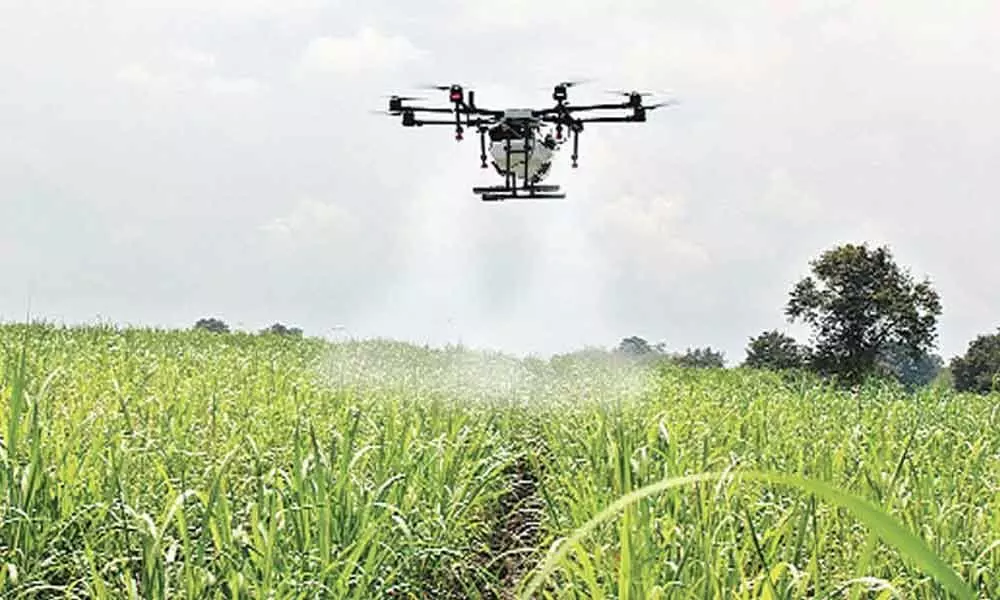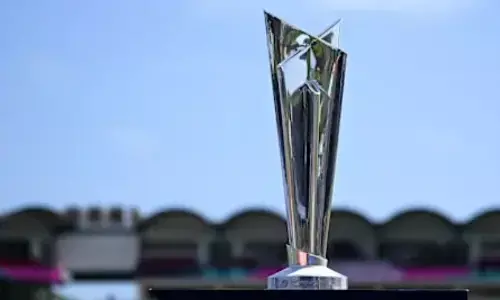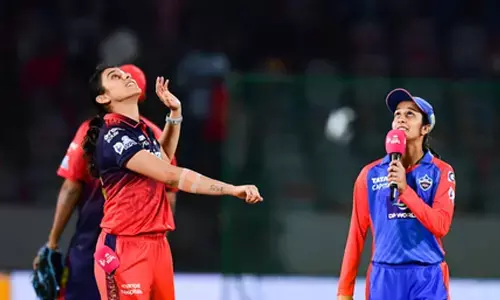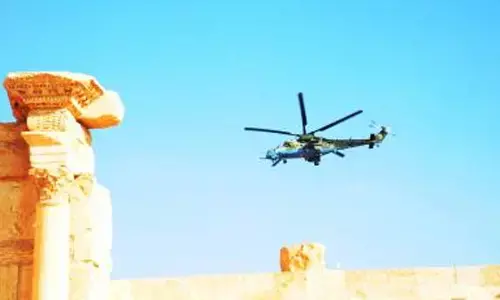Hyderabad: PJTSAU experiments on usage of drones in farming

Professor Jayashankar Telangana State Agricultural University (PJTSAU) joined hands with other stakeholders to experiment on the use of drones as part of using emerging and disruptive technologies in the agriculture sector in Telangana.
Hyderabad: Professor Jayashankar Telangana State Agricultural University (PJTSAU) joined hands with other stakeholders to experiment on the use of drones as part of using emerging and disruptive technologies in the agriculture sector in Telangana.
According to the PJTSAU sources, as of now, there are several obstacles to the usage of drones in agriculture. This is, despite usage of drones have a proven ability to immensely help in building up accurate and reliable data for making decisions.
It was against the backdrop of increasing agriculture area and vision of the future agriculture in Telangana, the university has joined hands with several organisations like State Agriculture department, ISRO, ICAR, drone manufacturers and other institutions.
PJTSAU Vice-Chancellor (V-C) Dr V Praveen Rao said recently the university had also signed a Memorandum of Understanding (MoU) with the Anna University, Chennai for exchange of data and study on the drone technology.
A senior official of the State Agriculture department said currently Section 43 of the Insecticides Rules, 1971, "talks about only aerial spraying by a pilot and the conditions for spraying." They include, the operators shall mark the entire area for the aerial application of insecticide.
The operators should also need to take care of using only the approved insecticides, their formulations, at approved concentration and height. Also, the operators should provide first-aid facilities and all aerial operation shall be notified to the public, twenty-four hours in advance. This has to be done through the competent authorities.
Besides, animals and persons not connected with the operation shall not be allowed entering such areas of for a specific period. The pilots carrying out the aerial spraying operations should have undergone specialised training, including the clinical effect of the insecticides.
However, these rules are in any way not related to UAVs or drones being operated without a pilot on board, he added.
Keeping in view the importance of UAVs usage in agriculture, the Indian Council of Agricultural Research (ICAR) has already appointed a committee to recommend the rules and regularities for using the drones.
It was against this backdrop that the PJTSAU had recently organised a workshop on drone-based applications in agriculture, as the State government is evincing interest to introduce modern, emerging and disruptive technologies in the agriculture for the benefit of the farmers.














